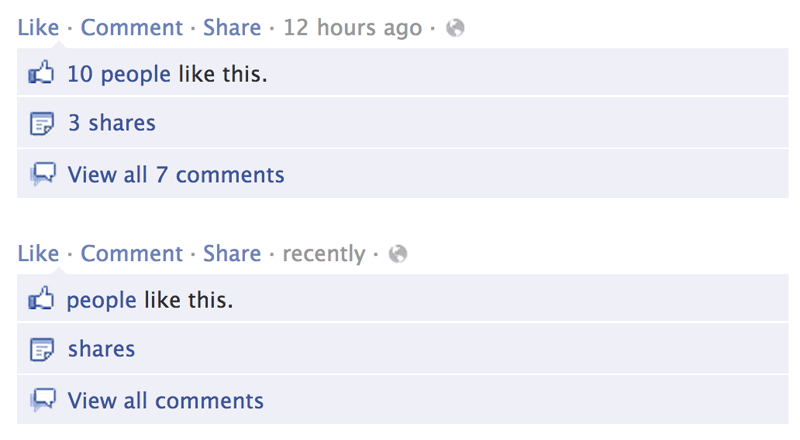“The Critical Engineer notes that written code expands into social and psychological realms, regulating behaviour between people and the machines they interact with. By understanding this, the Critical Engineer seeks to reconstruct user-constraints and social action through means of digital excavation.”[1]
People, wake up! Facebook is constantly conducting experiments. Moreover, as some have pointed out, emotional engineering is, and always has been, Facebook’s business model. As FB imposes many different user interfaces to its users, messing around with and filtering news feeds, it is constantly trying to find out what generates the most user (inter)activity and data to exploit.
The placement of ads, buttons, images, icons, notifications, the order of posts, and -in the light of the recent emotional contagion experiment– the posts it does or does not display; there are many FB user interface elements and algorhythms that (in)directly affect our emotions. Also, FB has become eerily personalized in many ways, which may or may not be obvious to you by now. So why not take personalization a step further, yourself?
This post is not another in-depth post about Facebook’s recent emotional experiment, nor is it about research ethics. Instead, it is about about realizing that you can easily take some matters into your own hands, with regards to emotional manipulation on Facebook. You can experiment with several browser add-ons, and userscripts to -at least partially- reclaim control over some important design decisions that Facebook imposes. In my MA thesis ´The Politics of Social Media. Facebook: Control and Resistance‘ ( 2010) and in ‘Facebook Resistance: Augmented Freedom‘ (2013) I argued that ‘augmented browsing‘ is a way to expand your freedom as a user on Facebook, enabling you to change the operation of the system.
As a researcher for FB Resistance, a research initiative and hands-on workshop series to rethink and change the frame that Facebook is setting for us, I’ve Stumpel-ed upon several interesting and inspiring add-ons that you might want to experiment with. These are selected in particular to generate awareness amongst Facebook users aware the capability of reverse emotional engineering. So if you feel uneasy with Facebook’s experiments and how they may affect your emotions -while you are are still on Facebook- why not experiment yourself?:
Facebook Mood manipulator
by Lauren Mccarthy.
“Why should Zuckerberg get to decide how you feel? Take back control. Leverage Facebook’s own research to manipulate your emotions on your terms.”
“Facebook Mood Manipulator is a browser extension that lets you choose how you want to feel and filters your Facebook Feed accordingly.” (Chrome only)

–
Facebook Demetricator
By Benjamin Grosser
A web browser extension that hides all the metrics on Facebook
“The Facebook interface is filled with numbers. These numbers, or metrics, measure and present our social value and activity, enumerating friends, likes, comments, and more. Facebook Demetricator is a web browser addon that hides these metrics. No longer is the focus on how many friends you have or on how much they like your status, but on who they are and what they said. Friend counts disappear. ’16 people like this’ becomes ‘people like this’. Through changes like these, Demetricator invites Facebook’s users to try the system without the numbers, to see how their experience is changed by their absence.”

Facebook Demetricator Demetricating Likes, Shares, Comments, and Timestamps
Original (top), Demetricated (bottom)
–
Rather
“From the creators of Unbaby.me, comes the most robust system ever created for getting rid of the stuff you hate on Twitter and Facebook.”
–
Social Fixer
by Matt Kruse:
Multi-featured browser add-on that enables you to manipulte your news feed: Add filters, stay on ‘most recent posts’ instead of ‘top stories’, hide posts you’ve already read and a whole lot more.

–
iDislike button (done right!):
This excellent user-friendly dislike button works like a charm and other users don’t have to install it to see your Dislikes.
Because some posts do need dislikes instead of likes, (e.g.) shared articles about Facebook’s unethical research experiments.

[1] THE CRITICAL ENGINEERING MANIFESTO. The Critical Engineering Working Group: Julian Oliver, Gordan Savičić, Danja Vasiliev, Berlin, October 2011-2014.
